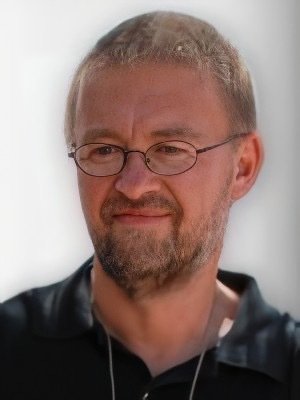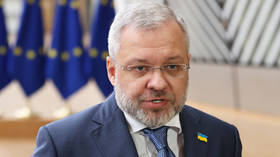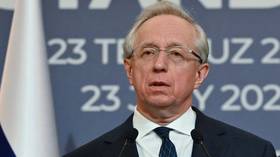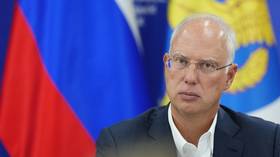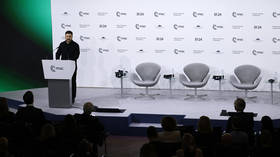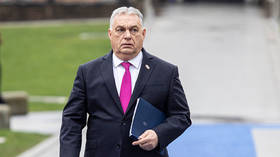Islamic State was born in NATO camps
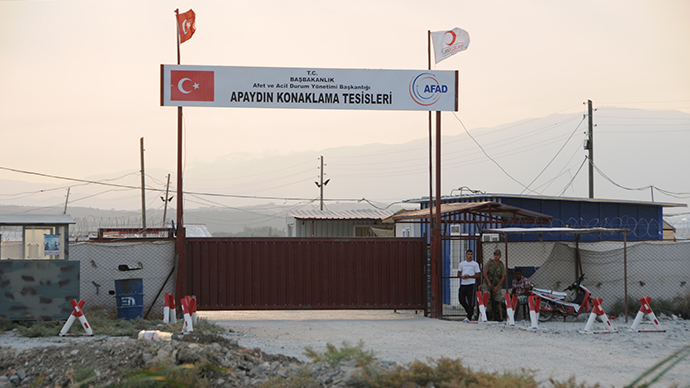
The West and its client states in the Middle East are now bombing Islamic State (ISIS) positions in Syria, killing both militants and civilians, violating countless international laws and treaties.
Oil installations inside Syria are in flames; the West “informed” Damascus that the bombing campaign could take three years, as if it would be the sole owner of the Middle East.
The fact that it is done with no international endorsement is by now not surprising anybody.
There is nothing standing on the way of this campaign; no air force is defending Syrian territory, no surface-to-air-missiles are fired.
Yet, the US and the UK make no secret that this is not just a campaign to debilitate ISIS positions. The US is openly declaring alliance with the “moderate opposition forces” inside Syria, which essentially means those forces that are fighting to overthrow the government of President Assad.
Damascus’ plea for a broader coalition to fight ISIS is being ignored. No wonder – for years Islamic State (or ISIS) was actually an integrated part of the “opposition movement” supported, trained and financed by the West and its regional allies.
Hezbollah is already fighting IS
The excuse or justification, for the latest attacks against Syria, is simple. British Prime Minister David Cameron told lawmakers: "This is not a threat on the far side of the world. Left unchecked, we will face a terrorist caliphate on the shores of the Mediterranean."
By this, he was perhaps referring to that short Syrian Mediterranean coastline dotted with the cities like Latakia and Tartus, but also, most likely, to the entire Lebanon, which, according to a regional analyst, Michael Jansen, “...is already the third battlefront in the war against the Islamic State (IS) and, like embattled Syria and Iraq, it has neither the political unity needed, nor the material means to fight its battle.”
It is enough to read Daily Security Information Reports by UNSIOC in Lebanon to see how serious the situation really is. There are incursions from Syrian soil by the militants, kidnappings and constant arrests.
But most of the people in the region would definitely disagree with both Mr. Obama and Mr. Cameron about on whose shoulders rests the responsibility for this disastrous state of things.
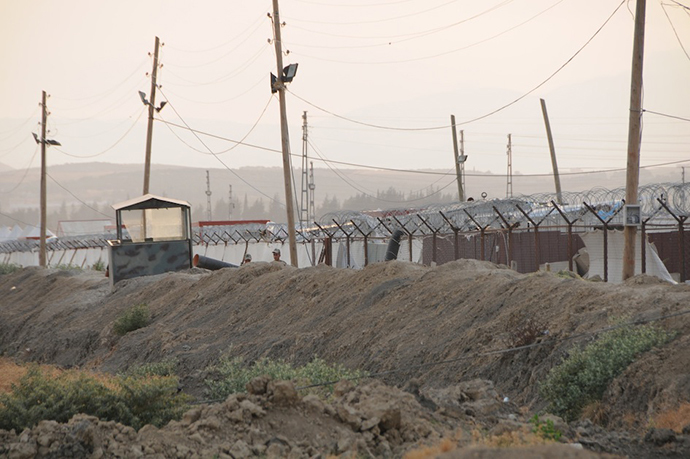
Outspoken leader of Hezbollah, Sayyed Hasan Nasrallah, spelled out his take on the situation, in Lebanon, on September 23, 2014:
“We are against American military intervention and an international coalition in Syria, whether that [action] is against the Syrian regime or Daesh (ISIS)... Under the false pretext of fighting terrorism the U.S. seeks to take control of the region...”
Hezbollah is actually already fighting ISIS, but, despite its great popularity in Lebanon and in the region, and its inclusiveness and great social projects (or maybe because of them), the organization is on the list of terrorist groups, at least in the US and in several European countries.
It appears that the West is making sure that Lebanon remains defenseless, even as it appears likely that ISIS could soon intensify its attacks or to make a decisive dash across the border, from Syrian territory. Weapons from France had not been delivered yet, partially because France “worries” that they could be used against Israel. The US is blocking any purchase of Russian weapons by Lebanon (Defense Minister of Lebanon, Ms. Nouhad Mashnouk visited Moscow trying to secure delivery of Russian-made arms), because of “the tension between the West and Russia over Ukraine.”
Region ruined, West controls the game
The situation is extremely complex but what is clear is that the West is pressing all the control buttons in the “game.”
It helped to create and to strengthen “Syrian opposition,” including its most radical elements like Islamic State. The goal was to depose President Assad. Now when the ISIS went “out of control,” and began gaining territory in both Iraq and Syria, their brutality and military success are used as justification for direct intervention in Syria.
It is becoming clear that no matter what, President Assad would never be allowed to win; even if (and perhaps especially if) he is supported by the majority of the Syrian people.
As a result of actions taken by the West, both Iraq and Syria are now fully destabilized, or more precisely, they are in ruins.
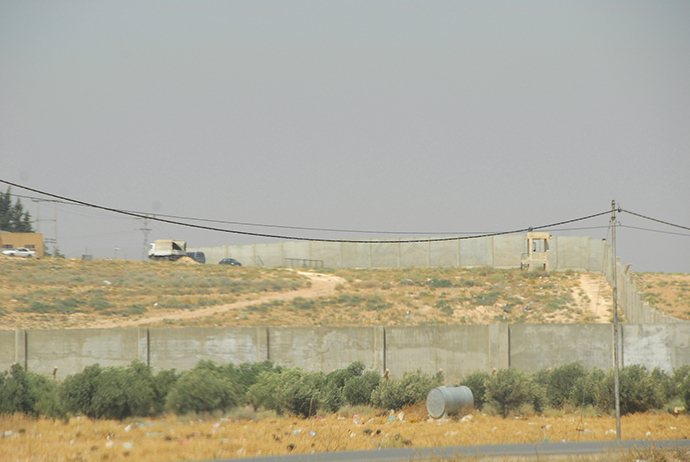
Lebanon does not even have fully functioning government or sound military, and may be swept away by the destructive tide.
The region is now literally flooded with millions of refugees.
And the West is once again pounding the area with Tomahawk missiles and bombs. Several pro-Western Arab regimes that are co-responsible for the situation in Syria and Iraq - Bahrain, Jordan, Qatar, Saudi Arabia and the United Arab Emirates - have joined the “campaign,” by offering their jets. This way, there is some illusion of legitimacy - their handlers in Washington can trumpet to the world that “they are not in it alone.”
While the “threat of terrorism” and “danger to the region and its people” are quoted as the main justifications for the military action, there is really very little logic in those arguments, and many citizens of the Middle East now simply believe that the West is aiming at the overthrowing of the government of Syrian President Assad, at creating an independent, oil-rich, and pro-Western Kurdish state, and possibly even at igniting conflict with neighboring Iran.
It is also understood that things could get resolved without the Western bombing campaign; through the channels that the US and EU would never use: governments in Damascus and Teheran would have to stop being pushed into the corner. In fact, Syria and Lebanon would have to be allowed to rearm and to be allowed to fight their own enemies. And Iran would have to be encouraged to join the fight against the Islamic State (ISIS).
On 21 September 2014, AP reported:“Syria's parliament speaker said Sunday that the US should work with Damascus to battle the Islamic State extremist group rather than allying with nations which he accused of supporting terrorism. Speaker Jihad Laham was apparently referring to Saudi Arabia and other countries backing rebels trying to overthrow Syrian President Bashar Assad.”
But the West is not aiming at resolving the crises. It is pushing and fighting for full domination of the region.
It is playing chess with both white and black pieces. In between are tens of millions of people, and entire nations. Every move terminates countless lives.
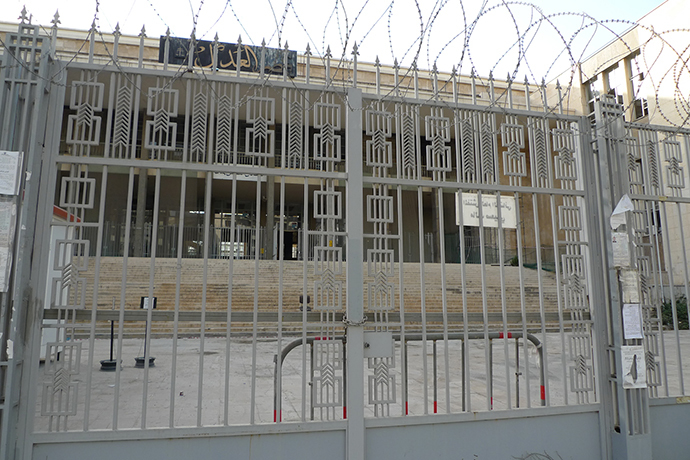
Create them, use them, fight them
ISIS did not fall from the sky. They were armed, financed and trained in the refugee camps built for “Syrian refugees,” in Turkey and Jordan. Both countries are staunch allies of the West; Turkey is on top of it a member of NATO.
Several regional reporters, including Turkish investigative journalist Huseyin Guler and Ulusal’s TV documentary filmmaker Serkan Koc, identified the camps as training facilities, particularly Apaydin in the vicinity of Hatay, near the Turkish border.
The fact that Jordan is offering its territory for purposes of “training the opposition” is no secret. Earlier this year I worked in two refugee camps near the Jordan-Syrian border: an old and overcrowded Zaatari Camp and one new one, which is still only partially operational – Azraq.
From testimonies given to me by both refugees and local inhabitants, Zaatari Camp has been used as a training facility for “Syrian opposition fighters,” for years. In the area, there was a clear presence of both Saudi and Qatari cadres.
The AP reported: “Jordan is… officially denying that any training of anti-Assad fighters takes place on its soil, though both Jordanian and American officials have acknowledged it does.”
The National, a daily newspaper published in the United Arab Emirates, reported on December 28 2013:
“A command centre in Amman or "operations room" as Syrian rebels describe it, gives military advice to the Free Syrian Army and channels weapons to them for their fight against Bashar Al Assad's regime… Rebels say there is also a complex, shadowy system of weapons movement, with diverse, sometimes parallel, supply routes. The command centre works with the FSA and the Supreme Military Council - the FSA high command headed by General Selim Idriss and allied with the Syrian National Coalition, the opposition political alliance backed by Arab states and the West.”
I investigated the situation on the Turkish-Syrian border, in the vicinity of the city of Hatay, on several occasions, for both the documentary film I was producing for Venezuelan TV channel TeleSur, and for several of my written reports.
The tolerant and multi-cultural city of Hatay has been living in fear for years, terrorized by those machinegun-waving bearded jihadi cadres who were transplanted there from Saudi Arabia and from the rest of the Gulf, in order to train and radicalize Syrian “opposition fighters.”
Apayadin Camp is where many of the ISIS fighters have their roots.
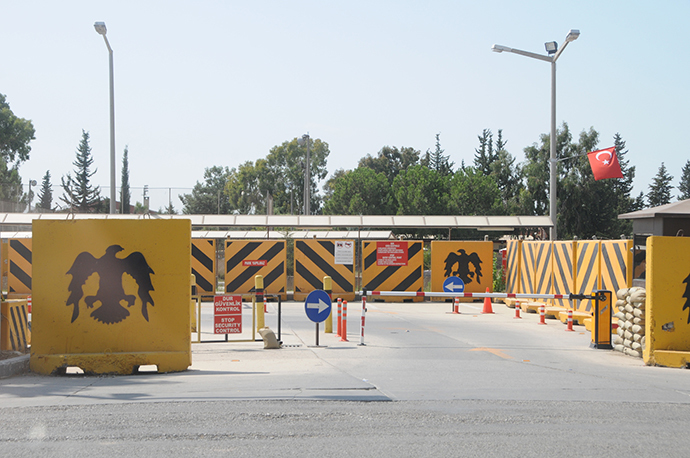
Serkan Koc, who has produced several groundbreaking works on the subject of the “Syrian opposition,” explained to me in Istanbul:
“Of course you do realize that those people are not really ‘Syrian opposition.’ They are modern-day legionnaires collected from various Arab countries, including Qatar and Saudi Arabia, paid by Western imperialist powers. Some are members of Al-Qaeda and other terrorist organizations. Most are militant Sunni Muslims. One could describe them as rogue elements hired to fight the Assad government.”
Some of those legionnaires, including those who belong to Islamic State (ISIS) had mutated and began wearing several hats (President Assad was warning for months that they would). They are still after President Assad whom they mainly hate for being secular, and for belonging to the Alawite sect, which is considered to be heretical in some Sunni Muslim circles, especially in the most radical ones. But now they are also after non-Muslims and non-Arabs, even after the interests of those who actually helped them to come to life – the West.
All this is not unlike how al-Qaida was born. It mutated from Western-trained and financed Mujahedeen that were first involved in the fighting against the Democratic Republic of Afghanistan (DRA) and later the Soviet Union.
The West is historically using, even grooming, the most horrendous allies, be it Mujahedeen in Afghanistan, the military and religious cadres in 1965 Indonesia, fascist military in Chile, Paraguay and Argentina, or present-day Ukrainian fascists crews.
“Syrian opposition” is just one of the latest editions. It is clear who is benefiting: the military and political establishment of the West, which supplies the weapons, destabilizes countries, even entire regions, and tries to establish full control over the world.
Then, if and when the situation changes and a former client’s movements go gaga, there is always another use for them: they can serve as a justification for direct invasions and further militarization of the regions and the entire planet.
First you create them, then you use them, and in the end you fight them.
“The only victims” are millions of people who are dying and becoming internally displaced in the regions destroyed by these brutal imperialist games.
The statements, views and opinions expressed in this column are solely those of the author and do not necessarily represent those of RT.
The statements, views and opinions expressed in this column are solely those of the author and do not necessarily represent those of RT.
